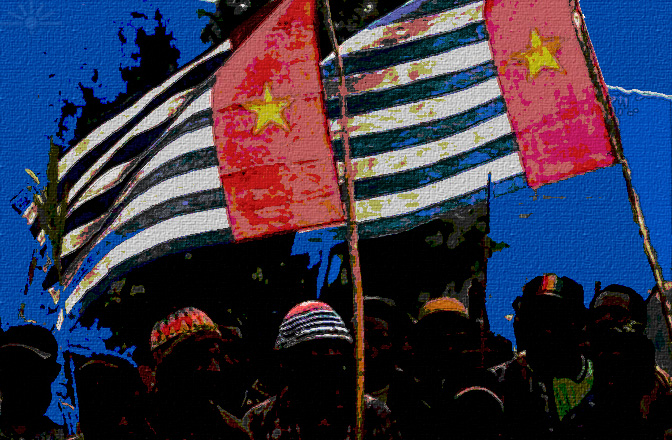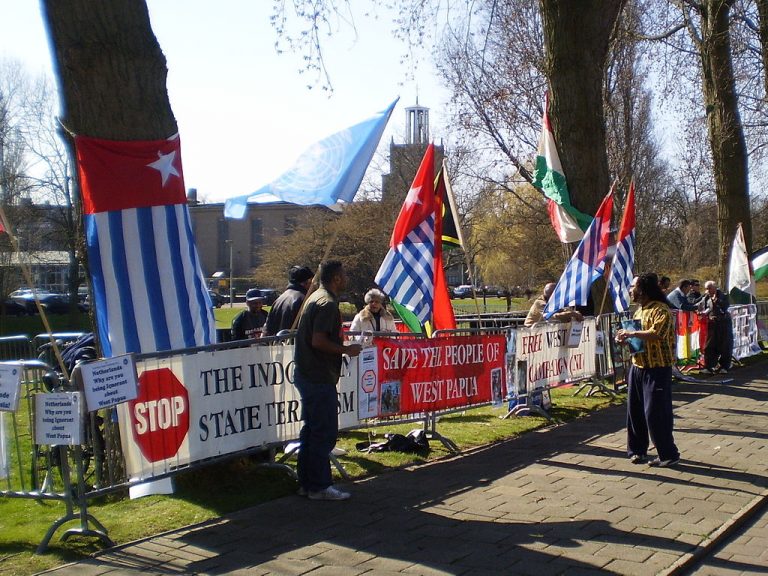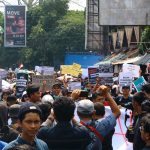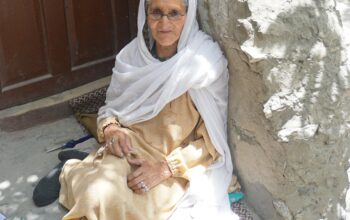Security means something different to different people. This specific argument can also be seen in the recent conflict in West Papua between the large numbers of locals demanding independence and the Indonesian authorities. Several deaths and injuries have been the result of never-ending tensions, including in the latest series of protest that started in mid-August this year.
History of the Long Voyage
Historically, Papua used to be a colony of the Netherlands which was then incorporated into Indonesia in 1969 as a result of the “Act of Free Choice”. Despite the fact that the UN also reaffirmed and accepted Indonesia’s sovereignty over Papua, high politics between Indonesia and the West can be argued to have been behind this whole event. The process itself was considered as very controversial due to the fact that the US-backed “Act of Free Choice” only consisted of 1,025 West Papuans who are handpicked by the Indonesian government. Adding to this, they were forced to vote to be controlled by the Indonesian government, at the gunpoint of Indonesian army. Allegations of human rights violations started to grow since that date.
Since then, the fight for freedom took flight for several reasons. In the highlands, the Organisasi Papua Merdeka (OPM) forces, the Papuans independence fighters, have continuously launched guerrilla attacks on the Indonesian police and army. Meanwhile, there are also several NGOs that have voiced the desire for independence of the West Papuans through diplomatic talks and several non-violent actions, both in Indonesia and abroad, including the United Nations.

Never-ending Discrimination and Prejudice
Since mid-August, protest rallies, some of which turned violent, took place in several cities in Indonesia. These rallies demand that the West Papuans would be given the rights of self-determination to become independent as well as condemning the racism against the Papuans. These rallies actually were triggered by a racist incident in Surabaya.
In Surabaya, the student housing of the Papuans was surrounded by people protesting due to the alleged disrespecting of the Indonesian flag. Among the angry masses were also Indonesian soldiers and nationalist groups; actors that are anticipated to always be there when the issue is related to nationalism. Unfortunately, racial slurs were also used by the masses to demand the Papua students to come out from their housing. A viral video showing that the security officers surrounding the student housing were mocking the students with racial slurs was later spread. It was this specific case that sparked all the outrage in Papua.
Basically, racism and prejudice towards the Papuans are very common in Indonesian society. The physical differences, as the Papuans are Melanesians who are very different from most Indonesians, and all the stereotypes that have been there for years may be the main reasons here. In the neighborhood, Papuans who are studying outside Papua often have a hard time living their student life.
For instance, a lot of locals would offer housing to students, except for Papuans due to the stereotype that they like to get drunk and cause trouble. Hence, they can’t receive the best educational outcomes. As it is difficult for them to find housing and they generally choose to live in the Papua’s students housing, sticking with other Papuans to make them feel safer. Still, a circulating prejudice, that they have such a secret activity associated with the Free Papua Movement inside the student housing, prevails.
Added to this, the fact that the Indonesian police decided to “let” the other organizations and angry masses surround the Papuans Student Housing in Surabaya, including all the racial slurs that took place, can also be seen as an example of the never-ending prejudice and racial discrimination within the society. No deeper investigations were done by the police before they decided to surround the premise, coercing students to comply under threat of tear gas. In fact, all 43 students that were arrested from the housing were freed the next day as the police couldn’t find any evidence about the alleged disrespect of Indonesian flag.
In this case, Prof. Ariel Heryanto argues that Indonesia is moving backwards into the colonial era with its aggressive and masculine style of nationalism, called hypernationalism. Quite similar to facsism, there are people who are overly idolizing certain symbols including the angry mob who came to the Papuans student housing because of an alleged disrespect of Indonesian flag.
Hence, why would you demand a group of people to stick with you, yet you can’t treat them equally and humanely?
Nationalism?
From this point, it can be understood that what the Indonesian authorities want is to implement the third principle of Pancasila, Indonesia’s ideology, the unity of Indonesia. Not only in Papua, a lot of separatism movement in Indonesia, such as those that occurred in Aceh, has always been solved by military measures. Jakarta perceives the Free Papua Movement, whose goal is to achieve the rights of self-determination for the Papuans, as a separatist movement which may disturb the structure and unity of the archipelago country. In fact, a demand to be given the rights of self-determination shouldn’t be regarded as an act of treason. Yet, anything linked to an independence movement in certain areas such as Free Papua Movement may be sued by Indonesia with the crime of treason.
Non-violent protests, which are also quite commonly held in several cities, are also usually disbanded by the security forces. Hence, it seems that Indonesian authorities forgot about the fourth principle of just and civilized humanity. One of the reasons why there are tensions is because the Papuans accused the Indonesian military as human rights violators, matched with all the circulating arguments about a huge number of human rights abuses in Papua.
Nevertheless, people might have a high probability of being accused of treason if they decided to speak out against the inequality and abuses in Papua. In fact, a lot of human rights and pro-democracy activists have been arrested and prosecuted due to their involvement in spreading the messages. One of them is Veronica Koman, a popular human rights lawyer, she got labelled as a suspect for spreading false information and provoking bigger protests through social media. On the 20th of September, Indonesian police issued a red notice to Interpol for her, as well as her name on the wanted persons list.

During these series of protest, the President of Indonesia, Joko “Jokowi” Widodo, said that “you may get angry, but forgiving is better” as he urged the people to forgive each other as the same citizens of the country. For some people, this was a very disappointing move from the President as it doesn’t sound helpful at all, especially as Jokowi won 78% in Papua during the Presidential Election. In this case, Jokowi should put more focus on respecting human rights in the region, including giving punishment to those involved in the racism and discrimination against the Papuans. True actions would be more appreciated rather than just ‘apologizing’.
The Danger of Inequality
As of now, the tension has significantly reduced and the situation has gotten better. Tri Susanti as one of the highest members in FKKPI, an organization that has linkages to the Police Department, has been enacted as the suspect of the racist incident in Surabaya. Added to that, 5 members of the Indonesian military have also been suspended for future investigation due to their alleged involvement.
Hence, I think it is very clear that even the smallest act of racism, distinction between us versus them, and unequal treatments may lead to the breakdown of national integrity and harmony in the social life if they are not treated wisely. The long period of discrimination faced by the Papuans in various areas is now known by the whole world.
Written by Naufal Rasendriya Apta Raharema
Photo Credits
West Papua Morning Star Flags, AK Rockefeller, CC BY-SA 2.0
“West- Papua-demonstrations”, Apdency, CC BY-SA 3.0







